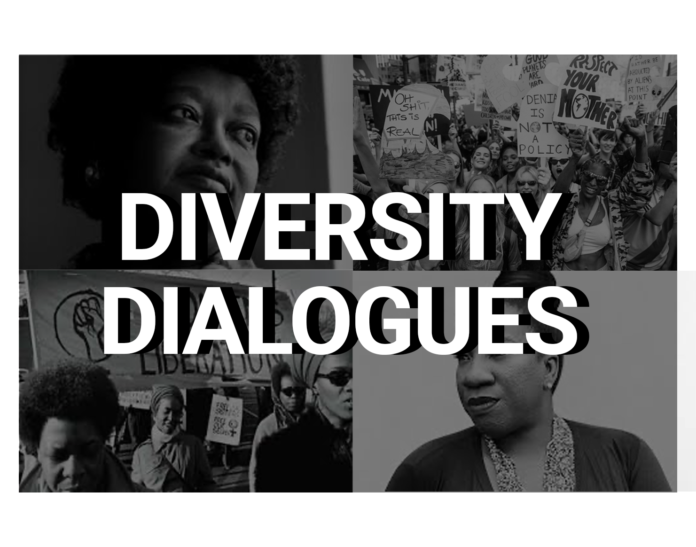The Office for Inclusive Excellence (OIE) hosted the fourth Diversity Dialogues: Voices Behind the Movement, discussing monumental movements that occurred in the United States and the voices that inspired the movement.
Kemoni Farmer, a graduate assistant for multicultural development, facilitated the discussion.
The conversation began with a Kahoot game surrounding education about creators of well-known movements such as #METOO, Black Lives Matter (BLM), the Stonewall Riots, climate strikes and more.
The goal of the Kahoot was to gain an understanding on participant’s knowledge about these movements in history.
Samantha Cox, a participant, said that she realized a lot of movements started before they gained traction.
“The founders [were] being pushed to the background and the people who push it into societal view become what people believe to be the founders,” Cox said.
A lot of participants had never heard of the name Claudette Colvin, who was the first women to not give up her seat on public transport during the civil rights movement.
Farmer said that many of the leaders of past and current movements identify as women. He asked participants if they think that leaders identifying as women plays a role as to why the movements and leaders aren’t more widely known.
“If I was a male, we probably wouldn’t need some of these movements, specifically the MeToo movement,” said Keisha Booker, the assistant director of multicultural development.
Booker said that the reason why a movement starts and the people who take over the movements can be completely different.
Agreeing with Booker, Illaria Perry, said that the narrative that is told is usually through those who are seen as successful or winning.
Briefly detailing off the narrative topic, Farmer asked if the participants felt celebrities played a role in bringing movements to the spotlight.
Multiple participants felt that celebrities reach a wider audience, but felt that sometimes they can damage movements.
“In today’s social media we have a lot of celebrities that have a close connection with their audience, so saying nothing can be damaging, but they can’t just hop on a movement to say something,” Perry said.
Delving into more relatable means of spreading awareness, Farmer asked if technology plays an affect on movements.
Multiple participants agreed that technology spreads awareness with photos and videos behind the scenes while also providing a different viewpoint.
Although other participants, such as Booker, had a slightly different view.
“Sometimes for me it is a double-edged sword,” Booker said. “I can’t imagine the Civil Rights Movement in this era. Some of the movements for us like BLM, we have the technology and we see all these people dying, but it doesn’t always do something. Technology is great but it doesn’t always get us what we want.”
Relating the conversation to colleges, Farmer asked how participants felt about universities acknowledging different movements.
Cox said that complications may arise when different colleges are based on different foundations, such as all female or religious.
“[These foundations] will play into how [the university] approaches different movements in general and how they want to represent the university under one policy or not,” Cox said.
Farmer ended the conversation asking the participants what efforts they would like to see specifically from Slippery Rock to give students a voice.
Booker said that she wishes minor movements would become more major movements and have more recognition- such as Transgender Day of Remembrance.
Perry said that it would be nice if university seminar classes held something like a diversity dialogue or required students to participate in one.
“It would be nice to have something that educates everyone, even if they feel like they don’t need it,” Perry said.
The next Diversity Dialogue will occur Tuesday, October 13 at 5 p.m. discussing religion and spirituality. Information can be found on CORE.








